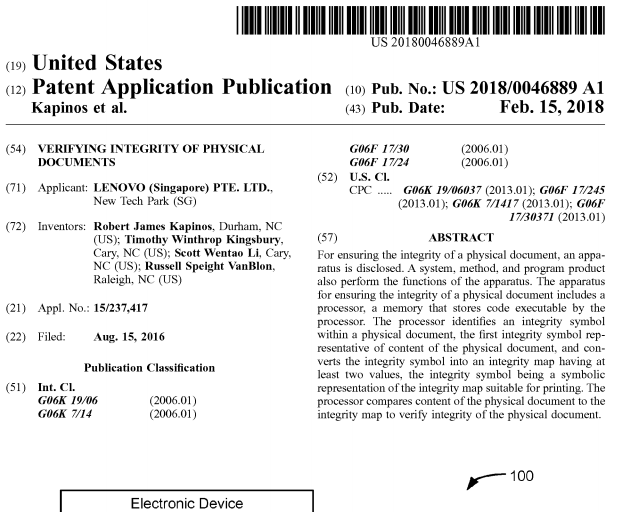Lenovo is set to use blockchain to verify the validity of documents. This is according to an application provided by U.S. Patent and Trademark Office (USPTO).
The application that was first submitted in August 2016 seeks a patent for using digital signatures that are encoded in documents, which can be processed by technology such as computers for the verification of a document legitimacy.

When using the blockchain security, anyone can check and validate the authenticity of the physical documents even if there are multiple copies made; even other people who have made entries on the blockchain. A key advantage of the system is that multiple parties that have copies of the same document can verify if it is the accurate copy.
Lenovo has had other trials with blockchain technology last year. According to an article by Forbes, the company collaborated with IBM to come up with a blockchain invoicing system. The partnership’s aim was to invent a system that could make operational data processes and billing transparent and easily traceable.
Other global companies that have taken advantage of blockchain to improve their services include IBM:
- IBM collaborated with a network of banks to use blockchain software and digital currency to move money throughout the South Pacific. The network has 12 currency corridors that include Australia, New Zealand, and other countries including Tonga and Fiji. Merchants now find it easier to send money in real time to other countries.
- IBM is also involved in tryouts with other global companies such as Maersk, which is based on the Hyper ledger fabric – a blockchain network that provides a foundation for those applications that have modular architecture. The solution was built by IBM and Digital asset to host chaincodes, which are smart contracts that have the application logic of the network.
- Another well-known Ethereum app is Augur, which uses a blockchain betting system to predict upcoming events.
Full article: Lenovo To Use Blockchain Technology For Validation Of Documents